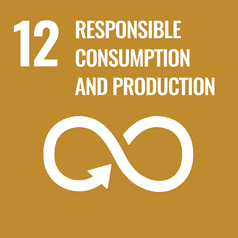Funding boost to technology for lower emission steel
Promising technology that could be suited to the processing of Australian iron ores to create lower greenhouse gas (GHG) emission intensity steel has been awarded more than $2.9m in Australian Renewable Energy Agency (ARENA) funding to progress research to a pilot-ready stage.

Manufacturing steel from iron ore via the conventional blast furnace process route produces more GHG emissions than any other heavy industry, accounting for more than seven per cent of global annual GHG emissions. With Australia producing half of the world’s iron ore exports, technological innovation is vital to the industry’s value chain seeing reduced GHG emissions.
Co-Director of NIER’s Centre for Ironmaking Materials Research (CIMR), Professor Tom Honeyands, said the University would work with industry to seek to develop a lower emission alternative ironmaking process route using hydrogen and electricity - and one that is suitable for Australia's hematite-goethite iron ore resources.
The project will be delivered in collaboration with BHP and RWTH Aachen University in Germany.
As a lower emission intensity alternative to the blast furnace, the team is exploring the production of hydrogen direct reduced iron (DRI) followed by an electric smelting furnace (ESF) to remove the impurities present in iron ore.
Electric smelting furnaces offer several advantages for steelmaking over traditional smelting methods, including the potential to replace coal with electricity as an energy source, which would substantially reduce GHG emissions when generated by renewables.
Global demand for low GHG emission steel is expected to grow tenfold over the next decade, and NIER research groups are at the forefront of innovation in lower-GHG emission intensity steel production and low-carbon steel research.
On behalf of the Australian Government, ARENA has awarded $59.1m in funding across 21 research projects to support research and development and potential commercialisation activities covering renewable hydrogen and low GHG emissions iron and steel.
Related news
- New study aims to put asthma into remission
- $4.8m NHMRC Investigator grants to improve health of our communities
- Research team secures funding to advance breast cancer care
- Families need more support to pay a bigger part in child protection system
- Breaking the mould of stereotypical web3 auditing firms
The University of Newcastle acknowledges the traditional custodians of the lands within our footprint areas: Awabakal, Darkinjung, Biripai, Worimi, Wonnarua, and Eora Nations. We also pay respect to the wisdom of our Elders past and present.


